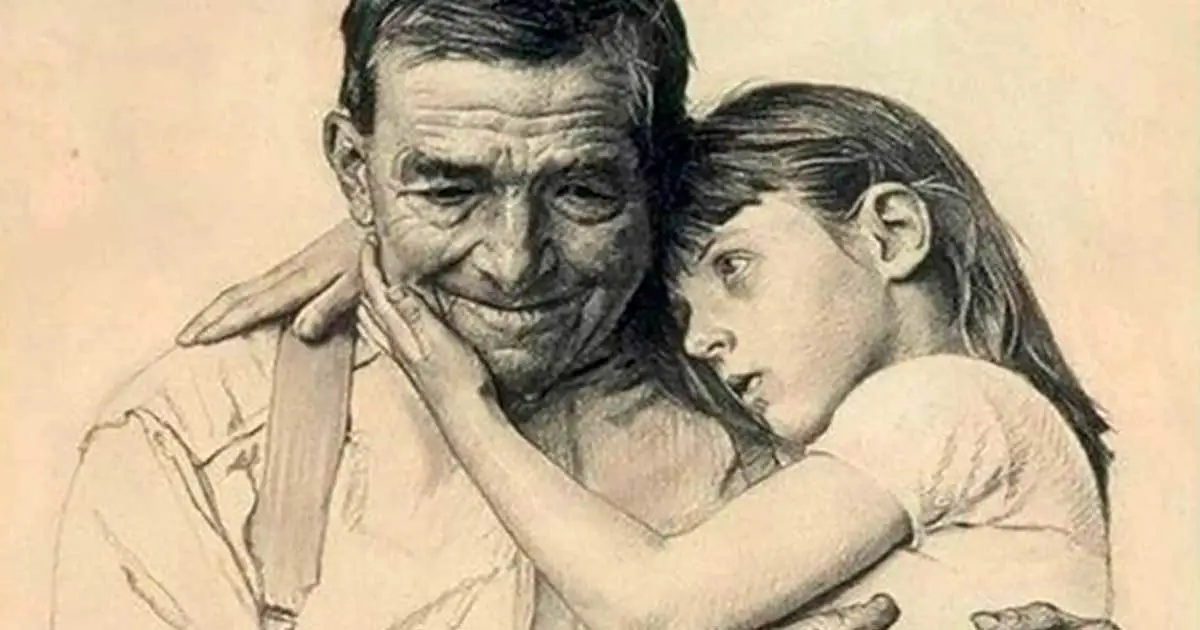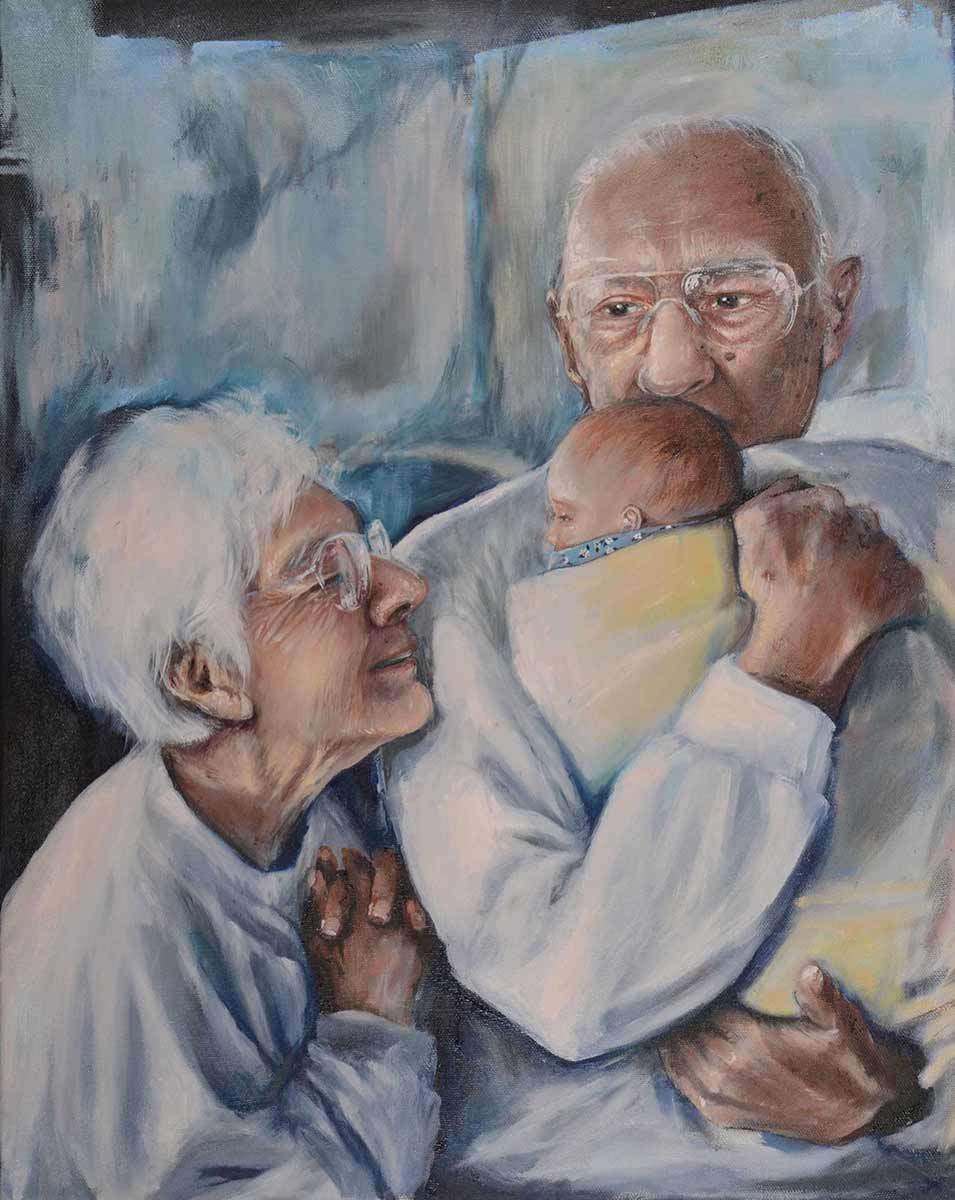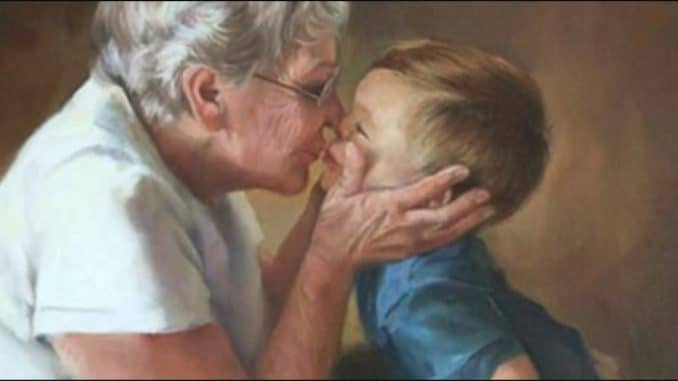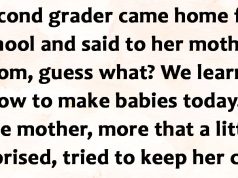Grandparents never die, they become invisible and they sleep forever deep in our hearts. And even today, we miss them and we would give anything to hear their stories, feel their caresses, and look at those eyes full of infinite tenderness.
While grandparents have the joy to see us being born and growing, as a fact of life, we must witness how they age and say goodbye to this world. The death of a grandparent is usually the first farewell that we will have to face in our childhood.
Grandparents, who assume the active role of raising their grandchildren, leave traces in their spirits, legacies that will accompany them for life as seeds of everlasting love during the days when they become invisible.
Nowadays it is very common to see grandparents participating in raising their grandchildren. They represent an invaluable support network in today’s families. Children however sense very well that the role of grandparents is different from that of their parents.
It is common that grandparents and grandchildren to develop a very special, deep, and intimate bond, so the loss of the grandparents can be very shocking and delicate in the personality of a child or adolescent. We wish to reflect on this subject with you.

Saying goodbye to Grandparents: the first experience dealing with loss
For some of us who have reached adulthood having our grandparents by our side, we have been truly privileged, however, others, had to face their death when they were still in early childhood when children still don’t understand a loss like this in all the magnitude. Commonly adults are not able to fully explain what happened and try to soften the death as if it “does not hurt”.
Adults should explain things clearly to their children and they should tell them the truth, this is the advice of Psych pedagogues. Of course, it’s necessary to know how to adapt to the news according to their age. One must, however, avoid making the mistake of many parents in preventing a last farewell of the child with his grandfather in the hospital, or beating around the bush with metaphors such as that “the grandfather is in a star or he is sleeping in the sky”.
We must help the child understand death simply and without metaphors so that misconceptions are not formed. If we tell it that the grandfather has left, it is likely that the child’s question is, when he will return.

If we are trying to explain to the child the death from a religious perspective it is necessary to emphasize the fact that the deceased is not going to “come back”. The explanations must be very brief, simple, and to the point, remember that a young mind can only absorb limited amounts of information.
It is also important that adults don’t hide their feelings and tears before the eyes of children. We must teach them that death is not taboo. It is necessary to vent ourselves for the loss of a loved one, we should suffer and speak of it freely. Children will do it at the right time and when they get a better understanding of such unfortunate events, meanwhile we must be their facilitators.
We have to be attentive to the fact that children will ask us many questions and these requests require of intelligent and precise answers. The loss of grandparents in childhood or adolescence will always be a very complex matter, and the best thing to do at this moment is to grieve with the whole family and be very careful about any questions or needs of your children.

Even if they are not, they are very present
Even if they are not, grandparents are always in our lives, in those common locations we share with our family and even in the oral heritage we offer to the new generations. To new grandchildren or great-grandchildren who were not able to meet their grandfather or grandmother.
Grandparents held our hands during the times while they taught us how to walk, but then, what they held forever were our hearts, where they will reside eternally giving us their light and their memory.
The grandfather’s presence is in those yellowed photos that are in a frame and not in the mobile memory. The grandfather is present in the tree that he once sowed with his own hands or in the dress that we still keep and that grandmother sewed it.
They are still present in the smells of cakes that remain in our emotional memory. Their memory is also in each of the wise advice we received from them, in the stories they shared with us, in the way we make the knots of our shoes, and even in that dimple in the chin that we inherited from them.
Grandparents are present in our feelings in a deep and delicate mode. They never die, they are more than simple genetics. They show us how to walk at their own pace, a little slower, how to enjoy an afternoon in the country, to learn that a good book has a different and special smell, because they have a language that goes beyond words.
It is a hug language, a gentle caress, a complicit smile, and an afternoon walk sharing in silence as we watch the sunset. All of this will last forever and here is where the real eternity of people takes place.
In the affectionate heritage of those who really love us and who honor us by remembering us every day.







